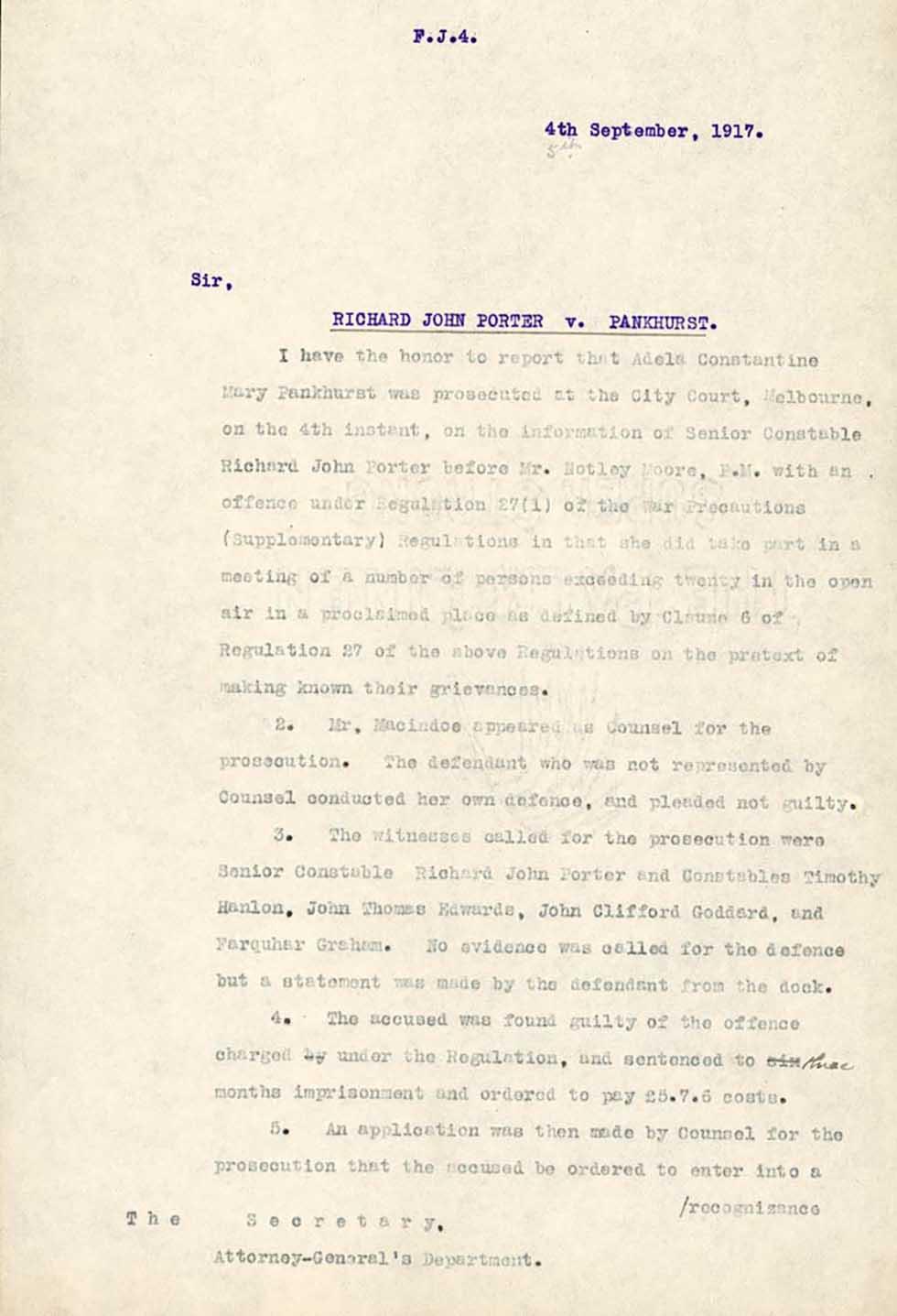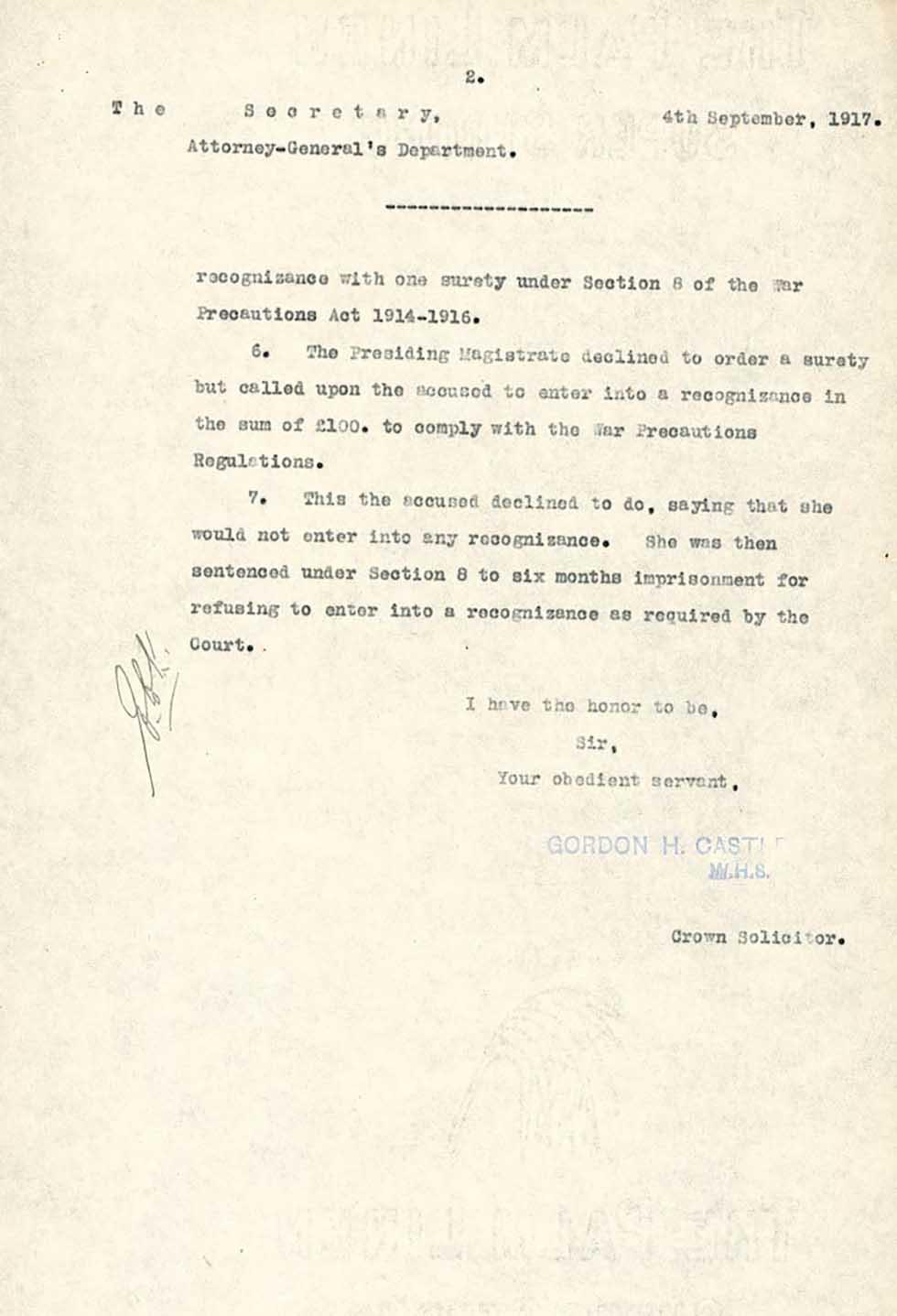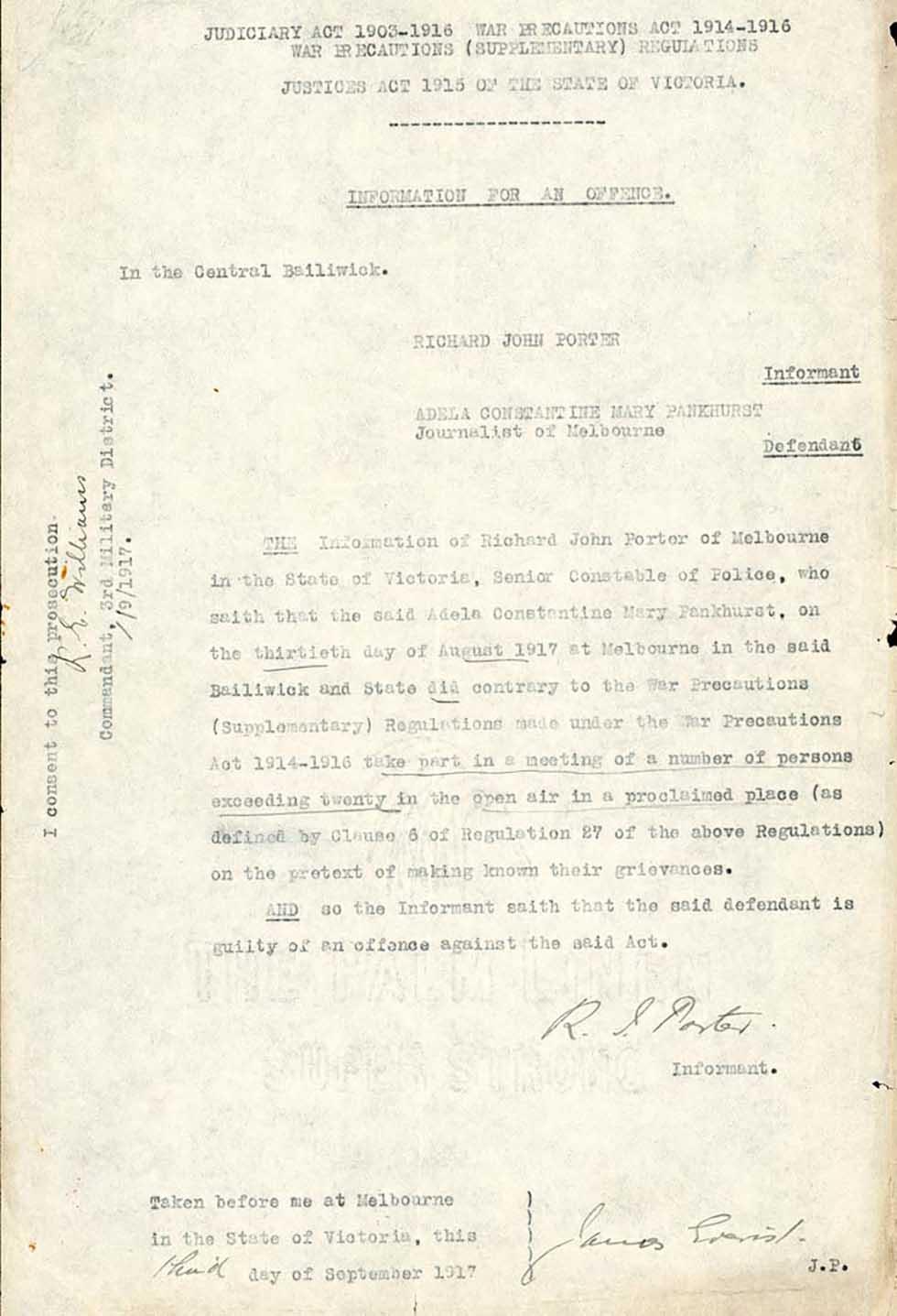


Aboriginal and Torres Strait Islander people should be aware that the National Archives' website and collection contain the names, images and voices of people who have died.
Some records include terms and views that are not appropriate today. They reflect the period in which they were created and are not the views of the National Archives.




F.J.4.
4th September, 1917
Sir,
[Underlined heading:] RICHARD JOHN PORTER v. PANKHURST.
I have the honor to report that Adele Constantine Mary Pankhurst was prosecuted at the City Court, Melbourne, on 4th instant, on the information of Senior Constable Richard John Porter before Mr Notley Moore B.M. with an offence under Regulation 27(1) of the War Precautions (Supplementary) Regulations in that she did take part in a meeting of a number of persons exceeding 20 persons in the open air in a proclaimed place as defined by Clause 6 of Regulation 27 of the above Regulations on the pretext of making know their grievances.
2. Mr Macindoe appeared as Counsel for the prosecution. The defendant who was not represented by Counsel conducted her own defense and pleaded not guilty.
3. The witnesses called for the prosecution were Senior Constable Richard John Porter and Constables Timothy Hanlon, John Thomas Edwards, John Clifford Goddard, and Farquhar Graham. No evidence was called for the defense but a statement was made by the defendant from the dock.
4. The accused was found guilty of the offence charged under the Regulation, and sentenced to three months imprisonment and ordered to pay £5.7.6 costs.
5. An application was then made by Counsel for the prosecution that the accused be ordered into /recognizance
The Secretary
Attorney-General’s Department
[Page 2.]
[Page numbered] 2.
[Header: ‘The Secretary, Attorney-General’s Department. 4th September, 1917.]
recognizance with one surety under Section 8 of the War Precautions Act 1914-1916.
6. The Presiding Magistrate declined to order a surety but called upon the accused to enter into a recognizance in the sum of £100. to comply with the War Precautions Regulations.
7. This the accused declined to do, saying that she would not enter into any recognizance. She was then sentenced under Section 8 to six months imprisonment for refusing to enter into a recognizance as required by the Court.
[Handwritten signature in the margin:] G Castle
I have the honor to be,
Sir,
Your obedient servant,
[Stamped in purple ink: ‘Gordon H. Castle’, ‘W.H.S.’]
Crown Solicitor.
[Page 3]
JUDICIARY ACT 1903-1916 WAR PRECAUTIONS ACT 1914-1916
WAR PRECAUTIONS (SUPPLEMENTARY) REGULATIONS
JUSTICES ACT 1915 OF THE STATE OF VICTORIA.
[Dividing line.]
[Underlined heading:] INFORMATION FOR AN OFFENCE.
In the Central Bailiwick.
RICHARD JOHN PORTER
[underlined:] Informant
ADELA CONSTANTINE MARY PANKHURST
Journalist of Melbourne
[Underlined:] Defendant
THE [underlined] Information of Richard John Porter of Melbourne in the State of Victoria, Senior Constable of Police, who saith that the said Adela Constantine Mary Pankhurst, on the thirtieth [underlined] day of August 1917 [underlined] at Melbourne in the said Bailiwick and State did [underlined] contrary to the War Precautions (Supplementary) Regulations made under the War Precautions Act 1914-1916 [begin underlined] take part in a meeting of a number of persons exceeding twenty in the open air in a proclaimed place [end underline] (as defined by Clause 6 of Regulation 27 of the above Regulations) on the pretext of making known their grievances.
AND [underlined] so the Informant saith that the said defendant is guilty of an offence against the said Act.
[Handwritten signature:] R. J. Porter
Informant.
Taken before me at Melbourne in the State of Victoria, this third day of September 1917
[Handwritten signature:] James [illegible]
J.P.
[Typed addition in the left margin:] I consent to this prosecution.
[Handwritten signature:] R. E. Williams
Commandant, 3rd Military District 1/9/1917.
This is an extract from a typed letter sent by the Crown Solicitor to the Secretary of the Attorney-General’s Department relating to the conviction of Adela Pankhurst in Melbourne in 1917. It outlines the details of the prosecution, including the names of the witnesses who appeared. The date of the letter has been corrected in pencil from ‘4’ September 1917 to ‘5’. It is headed ‘Richard John Porter v. Pankhurst’ and addressed to the Secretary at the bottom of the page.
Learning resource text © Education Services Australia Limited and the National Archives of Australia 2010.
Learn how to interpret primary sources, use our collection and more.
